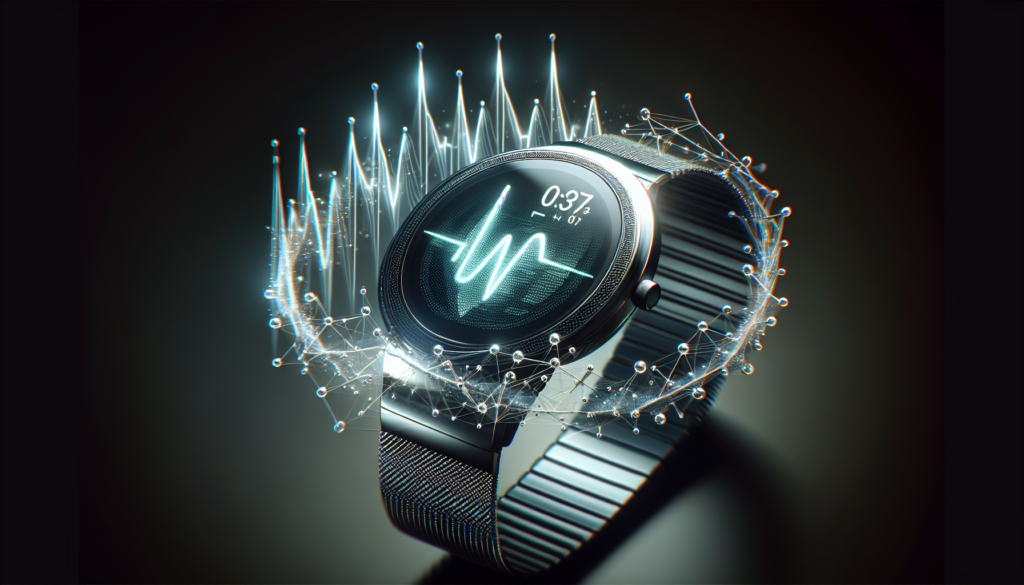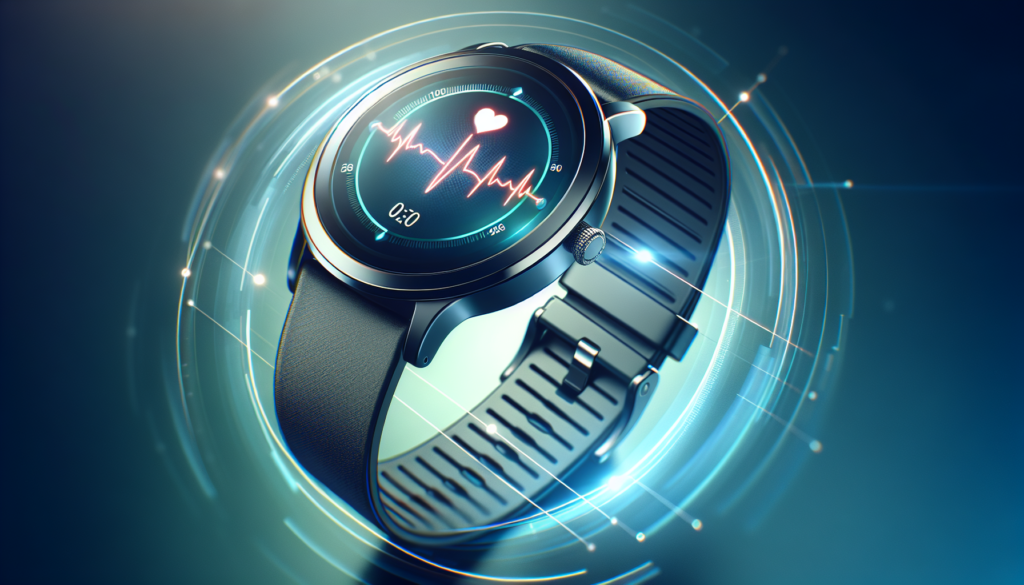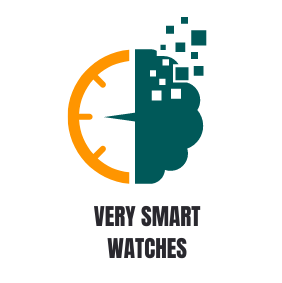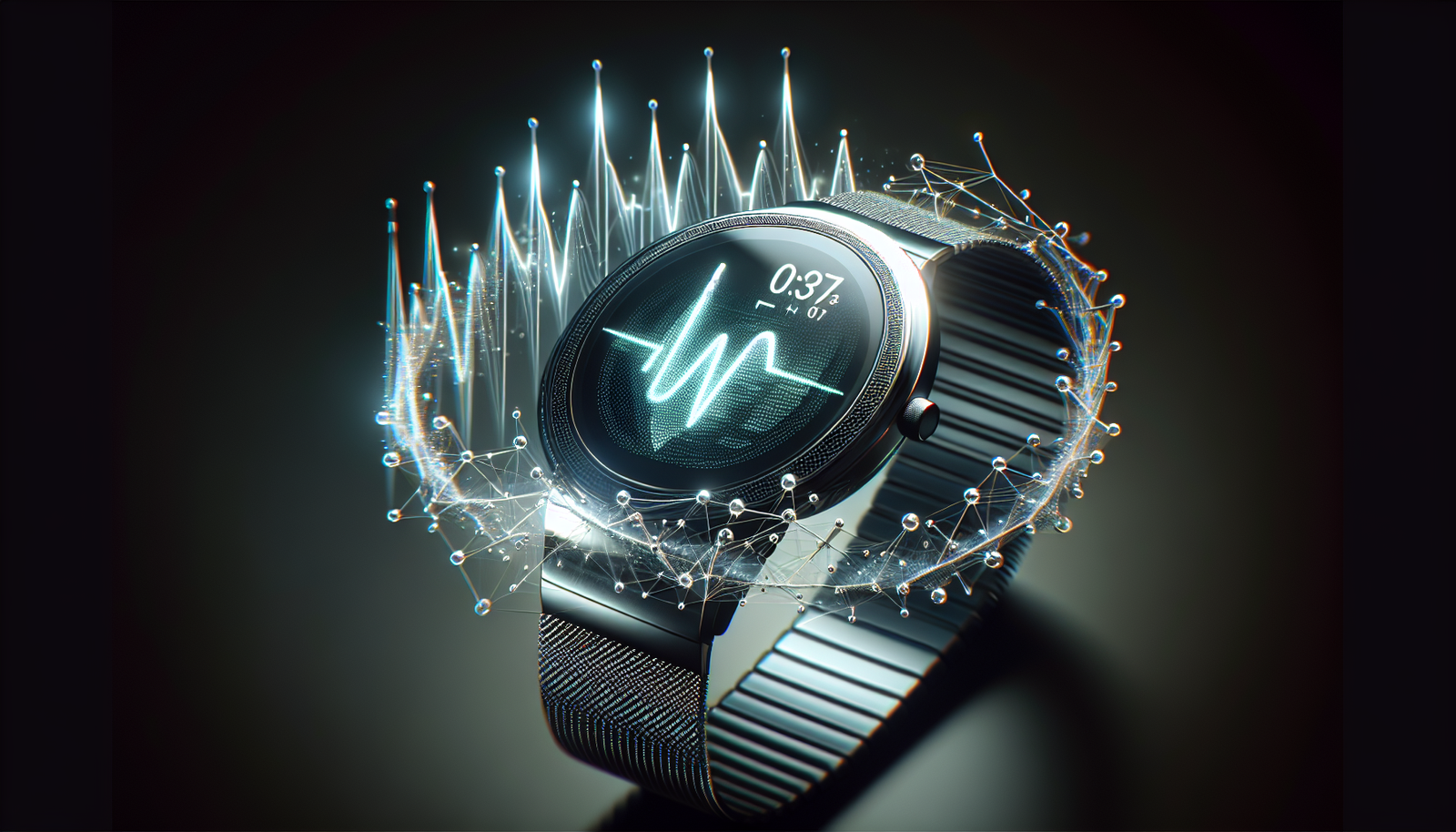Imagine a world where your smartwatch not only tracks your steps and heart rate, but also offers personalized insights into your overall health. This is the exciting reality we find ourselves in today. Smartwatches have become more than just trendy accessories; they have become powerful tools for proactive health management. From detecting pre-diabetes to offering mental well-being support, these devices are revolutionizing the way we approach our well-being. With each keyword and innovation comes a glimpse into a future where wellness is no longer a passive endeavor, but an active conversation. So, what does all this smartwatch health data actually mean? Let’s unlock the secrets and discover the potential that lies within.
The Potential of Smartwatch Health Data
The rise of wearable technology
In recent years, there has been a significant rise in the popularity of wearable technology, with smartwatches paving the way for a new era of health tracking. These innovative devices have become more than just a fashion statement, evolving into powerful tools that can provide valuable insights into an individual’s well-being. With an increasing number of people adopting smartwatches, the potential for utilizing their health data is vast.
Shifting from passive to proactive health tracking
Gone are the days when health tracking relied solely on manual input and periodic check-ups. Smartwatches have revolutionized the way we monitor our health by shifting from passive data collection to proactive empowerment. Instead of simply recording data, these devices have the ability to actively track and monitor various health metrics throughout the day. From heart rate and sleep patterns to steps taken and calories burned, smartwatches offer a holistic view of one’s well-being.

Catering to diverse health needs
One of the remarkable aspects of smartwatch health data is its ability to cater to diverse health needs. These devices are not limited to a particular demographic or health condition, but instead, can be personalized to fit individual requirements. Whether you have a physical disability that requires wheelchair accessibility features, a visual impairment that necessitates audio notifications, or even a pre-existing health condition like pre-diabetes, smartwatches can provide valuable insights and support for your unique needs.
Understanding Smartwatch Health Data
Data collection and monitoring
Smartwatches collect a vast amount of health data through various sensors embedded within the device. These sensors work seamlessly to track metrics such as heart rate, steps taken, sleep duration, and even stress levels. By continuously monitoring these data points, smartwatches provide users with a comprehensive overview of their well-being.
Types of health data tracked
Smartwatches are capable of tracking a wide range of health data, including but not limited to:
- Heart rate: By monitoring the heart rate throughout the day, smartwatches can provide insights into cardiovascular health and exertion levels during physical activities.
- Sleep patterns: Smartwatches analyze sleep duration, quality, and even specific sleep stages, helping individuals identify potential sleep-related issues and improve their overall sleep hygiene.
- Steps and activity: With built-in accelerometers, smartwatches track the number of steps taken, distance covered, and calories burned, encouraging users to achieve their daily activity goals.
- Stress levels: Through the use of heart rate variability analysis, smartwatches can detect signs of stress and provide users with recommendations for stress management techniques.
Interpreting the data
While smartwatches excel in collecting health data, the real value lies in their ability to interpret this data. Advanced algorithms and machine learning techniques enable these devices to provide meaningful insights and recommendations based on the collected information. By analyzing patterns, trends, and correlations within the data, smartwatches can help users make informed decisions about their health and well-being.
Accuracy and reliability of smartwatch health data
One key concern when it comes to smartwatch health data is the accuracy and reliability of the collected information. Manufacturers invest significant resources into ensuring the sensors and algorithms used in their devices provide accurate readings. However, it’s important to note that smartwatches may not always be as precise as professional medical equipment. Nevertheless, they offer valuable insights and trends that can help individuals stay proactive about their health.

Personalized Wellness Dashboards
Visualizing health data
Smartwatches offer personalized wellness dashboards that provide users with a visual representation of their health data. These dashboards display metrics such as heart rate, steps taken, sleep patterns, and more in an easy-to-understand format. By visualizing this data, individuals can track their progress, identify trends, and make informed decisions about their health goals.
Setting personal health goals
With the help of personalized wellness dashboards, individuals can set specific health goals tailored to their needs. Whether it’s aiming for a certain number of steps per day, achieving a target heart rate during exercise, or improving sleep quality, smartwatches allow users to establish realistic and achievable goals. By tracking progress towards these goals, individuals can stay motivated and focused on their journey to improved health.
Tracking progress and achievements
The ability to track progress and achievements is a significant advantage of utilizing smartwatch health data. These devices provide daily and long-term insights into an individual’s health journey, allowing users to monitor improvements over time. By celebrating achievements along the way, users are motivated to continue their efforts and maintain a healthy lifestyle.
Customizing display and notifications
Smartwatches offer a high level of customization when it comes to displaying health data and receiving notifications. Users can select the metrics they want to see on their watch face, such as heart rate or step count, allowing for easy at-a-glance monitoring. Additionally, users can customize notifications to receive alerts about goals, reminders to move, or even medication reminders. This level of customization ensures that smartwatches fit seamlessly into an individual’s daily routine and cater to their specific needs.
Biohacking Your Health with a Smartwatch
Utilizing biofeedback for improved health
Smartwatches provide biofeedback, allowing individuals to gain a deeper understanding of their body’s responses to various stimuli. Whether it’s monitoring heart rate during exercise to optimize performance or utilizing breathwork exercises guided by the device, smartwatches enable users to biohack their health. By leveraging this biofeedback, individuals can make informed decisions and take proactive steps towards improving their overall well-being.
Tracking fitness activities and performance
One of the key functionalities of smartwatches is their ability to track fitness activities and performance metrics. Whether you’re a seasoned athlete or just starting on your fitness journey, smartwatches can provide valuable insights into your workouts. From tracking distance covered during runs to analyzing heart rate zones during high-intensity interval training, these devices offer detailed information to help individuals optimize their fitness routines.
Optimizing sleep patterns
Sleep plays a vital role in overall health and well-being, and smartwatches can help individuals optimize their sleep patterns. By tracking and analyzing sleep data, such as duration, disturbances, and specific sleep stages, smartwatches provide personalized recommendations for improving sleep quality. Whether it’s adjusting bedtime routines or creating a more conducive sleep environment, these devices help individuals achieve a restful night’s sleep.
Monitoring stress levels
Stress can have a significant impact on both mental and physical health. Smartwatches utilize heart rate variability analysis to monitor stress levels and provide individuals with insights into their stress patterns. By identifying triggers and recognizing patterns, users can take proactive steps to manage stress effectively, whether through breathing exercises, meditation, or other stress-reducing techniques.
Practical Applications of Smartwatch Health Data
Wellness for individuals with disabilities
Smartwatches offer inclusive features that cater to individuals with disabilities. From wheelchair accessibility features to audio notifications for those with visual impairments, these devices ensure that everyone can benefit from health tracking. By providing accessible and customizable interfaces, smartwatches empower individuals with disabilities to monitor their health and well-being effectively.
Support for mental health and well-being
Mental health is a growing concern, and smartwatches have the potential to provide valuable support in this area. By tracking metrics such as heart rate variability, sleep patterns, and activity levels, these devices can identify signs of stress, anxiety, and depression. They provide users with prompts for stress reduction techniques, reminders for self-care activities, and even access to guided meditation or breathing exercises. This integrated approach to mental health support sets smartwatches apart as valuable tools in promoting overall well-being.
Screening and early detection of health conditions
Smartwatches have the potential to go beyond general health tracking and assist in screening and early detection of health conditions. By continuously monitoring vital signs and analyzing patterns within health data, these devices can alert users to potential health risks. For example, abnormal heart rate patterns could indicate a cardiovascular issue or pre-diabetes could be detected through variations in blood glucose levels. Early detection and intervention enabled by smartwatches can significantly improve health outcomes and save lives.
Integration with healthcare professionals and services
Smartwatches have the potential to bridge the gap between individuals and healthcare professionals. By securely sharing health data with doctors or healthcare providers, individuals can receive personalized recommendations and advice tailored to their specific needs. This integration enables remote monitoring and facilitates ongoing communication, ensuring timely interventions and improved healthcare outcomes.
Unlocking Peak Performance
Enhancing athletic performance
Smartwatches have become invaluable tools for athletes and fitness enthusiasts looking to take their performance to the next level. By tracking metrics such as heart rate, pace, and distance, these devices provide real-time feedback during workouts, helping individuals optimize their athletic performance. Whether you’re training for a marathon or aiming to beat a personal record, smartwatches can act as your personal coach, guiding you towards peak performance.
Tracking and analyzing sports-specific metrics
Different sports require different metrics to be tracked and analyzed, and smartwatches cater to these specific needs. For example, GPS tracking allows runners to monitor pace and distance, while swimmers can benefit from stroke detection and lap counting features. By providing sports-specific metrics, smartwatches help athletes tailor their training routines and improve their performance in their chosen sport.
Optimizing training routines
Smartwatches offer comprehensive insights into training routines, ensuring athletes can optimize their workouts for maximum results. By analyzing factors such as heart rate zones, recovery times, and workout load, smartwatches assist in creating personalized training plans. These plans take into account an individual’s goals, recovery capabilities, and specific metrics, ensuring that each training session is tailored to their unique needs.
Recovering from injuries
Injuries are an unfortunate part of an athlete’s journey, and smartwatches play a crucial role in monitoring recovery. By tracking metrics such as heart rate variability, sleep patterns, and overall activity levels, these devices can help identify signs of overtraining or fatigue. This information enables individuals to adjust their training routines and allow for adequate recovery, promoting injury prevention and a faster return to optimal performance.
Interpreting Health Trends and Patterns
Identifying trends in health data
Smartwatches collect a vast amount of data, and one of their greatest strengths lies in their ability to identify trends over time. By analyzing long-term patterns, individuals can gain insights into their overall health and make proactive decisions about their well-being. For example, recognizing consistently elevated heart rates during specific periods may indicate the need for stress management techniques or lifestyle adjustments.
Analyzing patterns for better health decisions
Patterns within health data can provide valuable information for making informed health decisions. By tracking trends, individuals can identify potential triggers for symptoms or track improvements after making lifestyle changes. For example, someone with a migraine disorder may notice patterns of certain foods or weather conditions that trigger their migraines. Armed with this knowledge, they can proactively avoid triggers and manage their condition more effectively.
Recognizing potential health risks
Smartwatch health data can help individuals recognize potential health risks before they become acute issues. By monitoring vital signs and analyzing patterns, these devices can alert users to potential deviations from their baseline readings. For example, a sudden increase in resting heart rate or consistently elevated blood pressure readings may signal the need for further medical evaluation. Early recognition of these risks allows for timely intervention and preventive measures.
Identifying correlations and relationships
Smartwatch health data can uncover correlations and relationships between different health metrics, leading to a deeper understanding of overall well-being. For example, individuals may notice that their sleep duration correlates with their stress levels, or that increased activity levels result in improved sleep quality. Recognizing these connections enables individuals to make lifestyle adjustments and create positive change in multiple areas of their health.
Meaningful Insights and Recommendations
Providing actionable insights
Smartwatches excel in providing actionable insights based on the collected health data. These insights go beyond simple data visualization, offering users tangible recommendations for improving their well-being. Whether it’s suggesting a certain number of steps to take each day, reminding users to take breaks and move around, or providing tips for managing stress, these insights empower individuals to take charge of their health.
Delivering personalized recommendations
Smartwatches are designed to provide personalized recommendations that cater to individual needs and goals. By analyzing an individual’s health data, these devices can offer specific suggestions for improving overall well-being. For example, someone struggling with sleep can receive recommendations for creating a bedtime routine or adjusting their sleep environment. These personalized recommendations ensure that individuals receive tailored guidance for their unique circumstances.
Guiding behavior change
Behavior change is a significant aspect of maintaining a healthy lifestyle, and smartwatches play an important role in guiding individuals towards positive habits. Through nudges, reminders, and alerts, these devices encourage users to make healthier choices throughout the day. Whether it’s reminding individuals to stay hydrated, encouraging them to practice mindfulness, or prompting them to take breaks from sedentary activities, smartwatches act as a constant source of motivation and guidance.
Motivating and rewarding healthy habits
Motivation is key when it comes to maintaining a healthy lifestyle, and smartwatches are designed to keep individuals motivated and rewarded for their healthy habits. These devices offer gamification elements that celebrate achievements, such as reaching step goals or consistently getting a good night’s sleep. By providing positive reinforcement and tangible rewards, smartwatches ensure that individuals stay motivated on their journey to better health.
Specialized Accessories for Smartwatch Health Data
Heart rate monitors and chest straps
Heart rate monitors and chest straps are specialized accessories that can be used in conjunction with smartwatches to provide even more accurate heart rate readings during workouts. These accessories are particularly useful for athletes and fitness enthusiasts who require precise heart rate monitoring for optimal training.
Blood pressure cuffs
Blood pressure cuffs can be connected to smartwatches, allowing individuals to monitor their blood pressure throughout the day. This provides valuable insights into cardiovascular health and helps individuals manage hypertension or other blood pressure-related conditions.
Blood glucose monitoring devices
Individuals with diabetes can benefit from smartwatches that integrate with blood glucose monitoring devices. By tracking blood glucose levels continuously, these devices help individuals manage their condition more effectively and make real-time decisions regarding insulin administration or dietary choices.
Sleep trackers and analysis tools
Sleep trackers and analysis tools offer specialized insights into sleep patterns and quality. Smartwatches can be paired with devices such as mattress sensors or wearable sleep trackers to provide more detailed information about sleep stages, disturbances, and overall sleep hygiene.
The Future of Smartwatch Health Data
Advancements in wearable technology
The future of smartwatch health data holds exciting possibilities as advancements in wearable technology continue to evolve. From improved sensor accuracy to longer battery life and more advanced algorithms, the potential for these devices to provide even more comprehensive health insights is immense. We can expect to see innovations that make smartwatches an even more integral part of our daily health routines.
Integration with other health monitoring devices
Smartwatches are poised to become central hubs for integrating other health monitoring devices. By seamlessly connecting with scales, blood pressure cuffs, glucometers, and other specialized health tracking tools, smartwatches can provide a holistic view of an individual’s well-being. This integration enables more comprehensive health monitoring and simplifies the management of multiple health conditions.
Artificial intelligence and machine learning
Artificial intelligence (AI) and machine learning (ML) will play a significant role in the future of smartwatch health data. These technologies have the potential to enhance data interpretation, allowing smartwatches to provide more accurate and personalized insights. By learning from user behavior, preferences, and health patterns, smartwatches powered by AI and ML can offer tailored recommendations and interventions for improved health outcomes.
Ethical considerations and data privacy
As smartwatches continue to collect and analyze vast amounts of health data, ethical considerations and data privacy become paramount. Manufacturers must prioritize data protection and ensure that user information is securely stored and managed. Additionally, individuals must have control over how their data is used and shared, ensuring transparency and informed consent in regards to data usage for research or other purposes.
In conclusion, smartwatch health data holds immense potential for revolutionizing the way we monitor and improve our well-being. These devices have evolved beyond mere fashion accessories, becoming powerful tools that empower individuals to take charge of their health. From personalized wellness dashboards and biohacking capabilities to practical applications in various health domains, smartwatches offer a wealth of information and support. By harnessing the insights and recommendations provided by these devices, individuals can make informed decisions, achieve their health goals, and ultimately lead healthier and more fulfilling lives.

